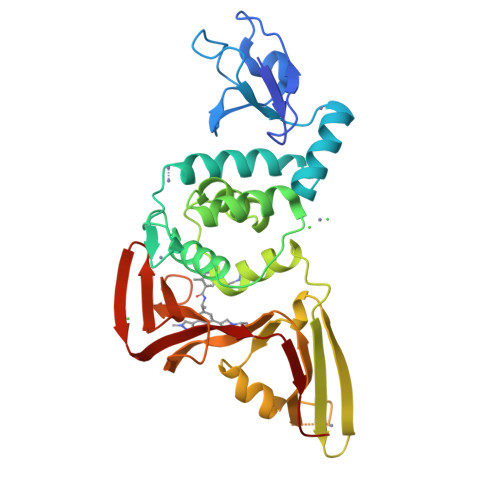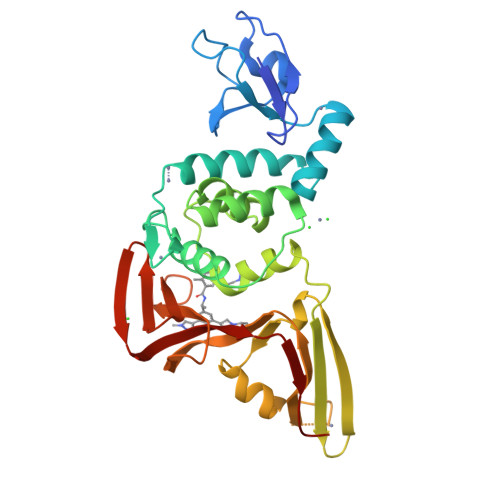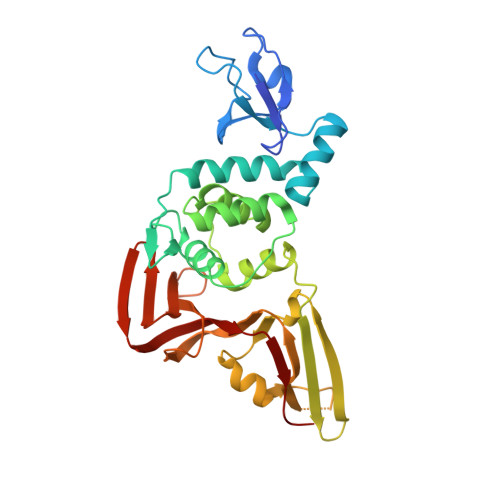Design of a SARS-CoV-2 papain-like protease inhibitor with antiviral efficacy in a mouse model.
Tan, B., Zhang, X., Ansari, A., Jadhav, P., Tan, H., Li, K., Chopra, A., Ford, A., Chi, X., Ruiz, F.X., Arnold, E., Deng, X., Wang, J.(2024) Science 383: 1434-1440
- PubMed: 38547259
- DOI: https://doi.org/10.1126/science.adm9724
- Primary Citation of Related Structures:
8UOB, 8UUF, 8UUG, 8UUH, 8UUU, 8UUV, 8UUW, 8UUY, 8UVM - PubMed Abstract:
The emergence of SARS-CoV-2 variants and drug-resistant mutants calls for additional oral antivirals. The SARS-CoV-2 papain-like protease (PL pro ) is a promising but challenging drug target. We designed and synthesized 85 noncovalent PL pro inhibitors that bind to a recently discovered ubiquitin binding site and the known BL2 groove pocket near the S4 subsite. Leads inhibited PL pro with the inhibitory constant K i values from 13.2 to 88.2 nanomolar. The co-crystal structures of PL pro with eight leads revealed their interaction modes. The in vivo lead Jun12682 inhibited SARS-CoV-2 and its variants, including nirmatrelvir-resistant strains with EC 50 from 0.44 to 2.02 micromolar. Oral treatment with Jun12682 improved survival and reduced lung viral loads and lesions in a SARS-CoV-2 infection mouse model, suggesting that PL pro inhibitors are promising oral SARS-CoV-2 antiviral candidates.
Organizational Affiliation:
Department of Medicinal Chemistry, Ernest Mario School of Pharmacy, Rutgers, the State University of New Jersey, Piscataway, NJ 08854, USA.



















